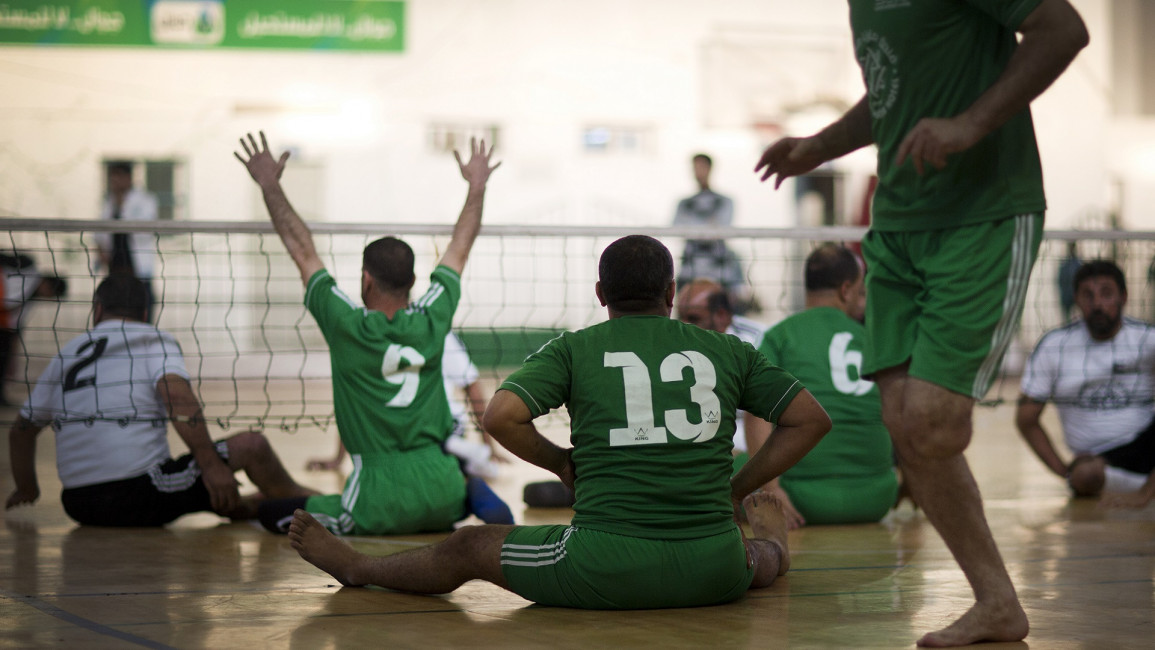
Israeli volleyball team in Doha stirs 'normalisation' controversy
Israeli volleyball team in Doha stirs 'normalisation' controversy
A beach volleyball duo from Israel beat a Japanese team in Doha, but their participation in a tournament on Arab soil has proven controversial.
2 min read
Activists say Israel should be boycotted for its mistreatment of Palestinian athletes [AFP]
An Israeli beach volleyball team took part in the FIVB Qatar Open over the weekend.
While the event was celebrated in Israel for "making history," being the first Israeli sports team to play and win on Arab soil since the start of the Arab-Israeli conflict, pro-Palestinian activists have cried foul.
Activists opposed to the "normalisation" of Arab-Israeli relations, including in culture and sports, are strictly against playing with and hosting Israeli teams.
This applies even to Arab countries that have no borders with Palestine, such as Qatar, as anti-normalisation activists say this gives legitimacy to Israel's repression of Palestinians in the occupied territories.
The group Qatari Youth Against Normalisation (QAYON) condemned the event on its Twitter page, demanding those responsible apologise and send a message of pressure against the Israeli authorities instead.
They also drew attention to what they said were the restrictions against Palestinian athletes imposed by Israel to underscore their case.
The raising of the Israeli flag in Doha caused wide condemnations on social media among Arab users.
Twitter Post
|
The beach volleyball duo aren't the first Israelis to compete in Qatar.
In 2013, Qatari authorities substituted a totally white flag in place of the Israeli flag during the official broadcasts of the swimming championship.
The next year, however, following an outcry, the Israeli flag was displayed at the Qatari tournament.
As Qatar prepares to host the FIFA 2022 World Cup, it has said Israel would be allowed to compete in the tournament should they qualify as it likely wants to avoid further bad publicity ahead of the event.Qatar closed down an Israeli representative office following Israel's war on Gaza in 2009. The two countries have no full diplomatic relations.
Arab-Israeli sports encounters often cause controversy, and acts of boycott against Israeli teams are seen by many in the Arab world as a symbolic act of resistance.


![Minnesota Tim Walz is working to court Muslim voters. [Getty]](/sites/default/files/styles/image_684x385/public/2169747529.jpeg?h=a5f2f23a&itok=b63Wif2V)




